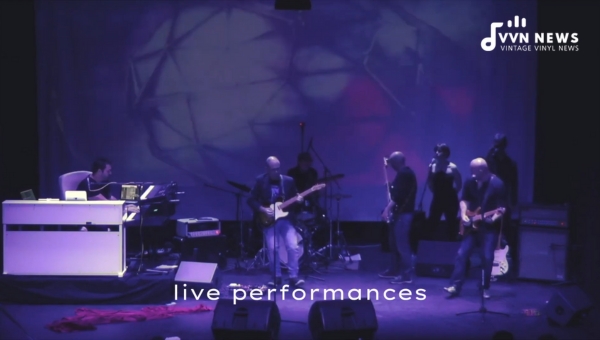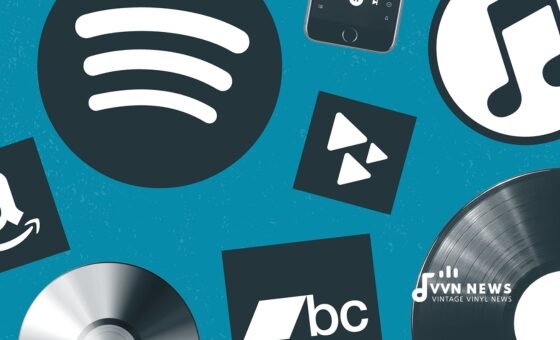Developing a marketing strategy for anything, including music, can be daunting, but don’t worry.
I know the initial steps can seem complicated and overwhelming. However, after going through this guide on creating a music marketing plan like a pro, you’ll navigate the frenzy like an expert.
My aim with this article is to take you from being unsure and overwhelmed to feeling confident and excited in your journey of handling your music marketing strategies more professionally.
I remember my first steps into this world as challenging. It was complete chaos between creating excellent music and figuring out how to get it in front of as many people as possible! If this resonates with you, too, worry no longer.
I will help you strategize your way through the tricky yet rewarding path of marketing your craft correctly—just like the pros do it!
What is a Music Marketing Plan?
A Music Marketing Plan is a comprehensive strategy that enables musicians and music industry professionals to define their goals, identify their target audience, determine the right promotional tactics, and create a schedule for executing marketing activities.
The plan typically includes defining your brand, setting objectives, identifying target demographics, outlining marketing channels (like social media, email marketing, or live events), and scheduling actions.
The ultimate goal of a Music Marketing Plan is to enhance visibility, engage with a loyal fanbase, and increase sales of music or concert tickets.
It is an essential guide for any musician looking to build their career in the music industry.
The Indispensable Role of a Music Marketing Plan

Crafting a music marketing plan is simply non-negotiable if you want to pursue a serious music career.
A chef can’t whip up a delicious dish without the correct recipe; you can’t promote your music effectively without a strategic plan to guide you.
Your music marketing plan serves as this crucial recipe card, guiding your every step with clarity and precision.
Building Visibility
Visibility is critical in the vast digital landscape of music today. A well-founded music marketing plan optimizes your online presence so that your tunes reverberate across various platforms, reaching just the right ears!
Increasing Fan Engagement
Your plan kickstarts creating an ardent fan base by specifying fan engagement strategies such as social media campaigns, live appearances, or fan merchandise.
Streamlining Efforts
Through clever strategizing, you can formulate tactics for using each promotional platform at its utmost potential, ensuring every effort counts.
Monitoring Progress
An integral part of your plan is measuring success and learning lessons from it, adapting strategies to progressively larger goals.
In essence, the significance of a professional and personal music marketing plan cannot be overstated!
It enhances visibility, boosts fan engagement, and streamlines promotional efforts, all while keeping track of progress towards achieving your vision.
Also Read: How To Structure The First Flute Lesson? [Expert Advice]
Why You Need a Music Marketing Plan:
I cannot emphasize enough that a well-devised music marketing plan is not a luxury but a prerequisite.
This critical document helps you communicate effectively with fans, develop deeper relationships, and catapult your visibility & reach.
To connect with fans better
Your fans are the most valuable asset for any musician aiming to make it big. But to truly resonate with them and carve a niche in their hearts, you must first gain insight into their preferences and behaviors.
A music marketing plan helps you identify the channels most favored by your audience for consuming music – whether this includes streaming sites like Spotify or social networking platforms like Facebook or Instagram.
Connecting with your listeners on media they already use, and love amplifies chances of your music falling on receptive ears. Hence, an effective plan plays a cupid between you and your loyal fandom.
Personal anecdotes on fan interactions
A few years back, during my initial foray into the industry, I naively believed producing quality music was enough – that it would speak for itself.
However, as I interacted more with my fan base during live performances and social media Q&As (prompted significantly by my newly adopted marketing ideas), I realized how instrumental these interactions were in retaining and attracting new fans.
Having witnessed firsthand how robust engagement boosted my growth as an artist, I now swear by a dedicated strategy focusing on online and offline channels to connect with my fans consistently.
Powerful Tool for Visibility & Reach
Remember this: even the best music has no value if it doesn’t reach the right people at the right time!
A solid digital presence substantiated through social media advertising, and collaborations can impart tangible wings to your musical creation.
Platforms like YouTube and Instagram allow musicians to supplement their audio creations visually, creating sensory treats that resonate powerfully with listeners.
Today’s world thrives on visibility; prioritizing digital relevance ensures a comprehensive reach for yourself as an artiste!
Music marketing plans help identify relevant influencers/channels to collaborate with – ultimately catalyzing optimal exposure of your creations across diverse audio-visual landscapes.
Essentials of a Useful Music Marketing Plan

When laying down the foundations of a robust music marketing strategy, it’s crucial that every block added contributes towards building a substantial piece of marketing architecture.
This doesn’t mean staring at an empty page, wondering how to fill it until epiphany strikes! Organize your thoughts under these three primary buckets:
Also Read: How To Upgrade Your Flute? [A Comprehensive Buying Guide]
Market Research
Like every endeavor in life worth pursuing, understanding the landscape is critical. In music, this translates to identifying who else is in your genre and differentiating yourself from them.
Recognizing what particular niche you fall into and leveraging this distinction strategically can help you better connect with your target audience.
One powerful method is SWOT Analysis (Strengths, Weaknesses, Opportunities, and Threats).
You will gain valuable insights to guide your next steps by evaluating your current position within these parameters.
Strategy Development
Having sifted through tons of raw research data might leave you scratching your head about where to go next. The key here? Identify patterns within the information!
Do most of your fans populate Instagram over Facebook? Is there a surge in the popularity of reggae fusion? The answers to such questions will guide the focus points for strategic development.
You then begin laying out clear roadmaps detailing how you plan on promoting upcoming releases or tours – narrowing down which platforms would best reach your audience based on their preferences or using strategic collaborations with more popular artists as stepping stones.
Integrated Marketing Communications
In today’s multi-channel environment, consistency across platforms is paramount.
Your messaging should be consistent regardless of where fans engage with your brand – Spotify playlists or Instagram reels!
Creating a unified communication approach pumps life into that single compelling narrative that resonates across every touchpoint – mailing lists, press releases, or live shows.
Rise above the din by articulating your unique voice so authentically that whenever fans hear it – they know it’s undeniably yours.
In essence, take market research findings as gospel truth; let their insights serve as guiding lights illuminating critical action points for strategy development; communicate so integrally that whenever your brand is encountered – greatness is recognized.
Steps to Create a Music Marketing Plan
Creating your music marketing plan is not just about setting abstract goals and aspirations.
It involves specific, actionable steps that need careful deliberation and execution.
Identify Your Target Audience
Your music isn’t for everyone; you must identify the cluster of listeners who will genuinely appreciate your art.
This defines your target audience – the crowd most likely to enjoy your music, attend your gigs, and, ultimately, support your career.
Whether it’s teenagers who love pop or adults with an affinity for classic rock, you must understand who they are.
Researching their demographics (age, location, gender), psychographics (interests, values), and behaviors (social media habits, preferred streaming platforms) can help tremendously in tailoring your music and marketing efforts in a direction that resonates with them.
Clarify Your Message, Vision, and Brand Identity
As an artist or a band, you must have a consistent identity that reflects through everything you do.
This includes shaping all content around your unique narrative or image, from songs unloaded on digital platforms to tweets blasted on social media.
Firstly, establish what you stand for: Are you championing social causes in lyrics? Does your aesthetic hark back to the grunge era?
Whatever shapes up as part of your creative DNA must seamlessly align with the perception communicated externally. This consistency ensures fans resonate deeply at emotional levels beyond just their taste in music.
Also Read: How To Use Music To Help Your Mental Health? [Expert Tips]
Determine Your Marketing Strategy
Now, we dive into a more strategic approach towards marketing. Let’s channel our research findings into creating our marketing strategy:
- Product: Identify what services/products will be advertised- is it the album launch? Or a new single?
- Price: What’s our pricing strategy for CDs or online streaming?
- Place: Which channels/platforms will be used? Physical locations or digital spaces?
- Promotion: What promotional techniques will be employed – online ads or social media buzz?
Here’s where we solidify our entire plan into an actionable strategy using all elements of the mix creatively while maintaining maximum impact.
Establish Your Budget and Marketing Resources
Consider what funds are currently accessible to finance these strategies.
Be realistic about what can be allocated for recording costs vs promotional activities accordingly – this helps strike a balance in ensuring quality content production and effectual marketing output.
Remember to value resources beyond monetary means, too – human resources willing to support passionately can offer immense help even on bootstrapped budgets!
Develop Your Music Marketing Strategy
Coming down to execution tactics:
- Create engaging content related to song releases, including accompanying videos and playlist placements.
- Use popular social media channels/platforms as powerful tools – post regularly!
- Engage with fans consistently – run competitions/giveaways and respond earnestly.
- Reach out on offline spaces – gigging sessions at local bars/clubs & networking events specified for aspiring musicians might cast miraculous wonders.
- Plan PR efforts effectively – utilize available relationships wisely towards acquiring editorial features/spots.
- Most importantly, measure progress! Track data zealously across platforms/channels against initial aspirations/goals mentioned at the start line.
Also Read: How To Teach Breath Control? [Easy Exercises For Singers]
FAQs About Music Marketing Plan
Why is a music marketing plan crucial for my career?
A music marketing plan is vital as it provides a comprehensive structure for promoting your musical work effectively, increasing visibility, connecting with fans, and boosting album sales.
Where do I start in creating my music marketing plan?
Start by identifying your target audience – their interests, tastes, and behaviors, which are indispensable to creating an effective marketing strategy.
How does brand identity play into a music marketing plan?
Brand identity conveys your unique artistic personality and style. It distinguishes you from others, making you stand out in the crowded musical domain.
How much time must I invest in creating a music marketing plan?
Constructing a detailed music marketing plan can be time-consuming initially, but it streamlines all future marketing activities, providing an efficient roadmap to follow.
Can my music marketing plan evolve or change over time?
Certainly! Just like the dynamics of the music industry itself, Your plan should be flexible and up for modifications per evolving audience preferences and the latest market trend.
Conclusion
Creating a music marketing plan is crucial for an aspiring musical artist.
I trust that these insights have shed light on the significance of such a plan and its fundamental elements- audience identification, branding, strategic mindset, and a keen eye on the budget.
Always remember to re-evaluate your goals and strategies at each step of your journey to ensure you’re staying true to your vision while adapting to the ever-evolving musical landscape.
May your music marketing plan set the stage for ascending notes of success!



